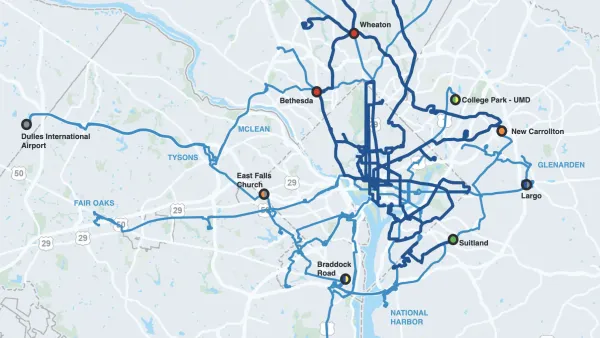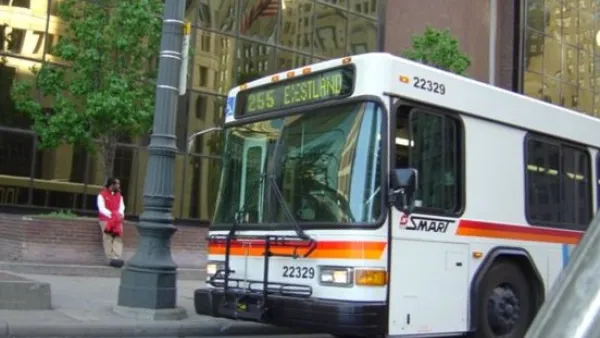As travel patterns and needs shift, transit agencies should look at service changes as a much-needed 'regular practice.'

In a guest post for TransitCenter, Laurel Paget-Seekins argues that, despite the challenges, "transit service needs to change in response to the COVID pandemic and to address underlying inequities." Although "[i]n general the status quo favors people and communities with access to political power," she writes, "this inertia was starting to give way, as agencies launched bus network redesigns to catch up on years of delayed service changes. COVID made it even more imperative to reassess service provision, as the pandemic altered travel patterns and revealed where and when service is most needed."
"Even as the pandemic (hopefully) recedes, the changes in travel needs will last for years as new patterns of remote work, deliveries, and land use take shape." As such, service changes must become "a regular practice," and "we need to find ways for agencies and communities to work through them collaboratively."
Paget-Seekins offers some suggestions for how agencies can address service changes in the future:
- "Transit advocates and agencies need to address the operating funding issue head-on and proactively."
- "Agencies need to work with community organizations, elected officials, and their governance boards to commit to a process of regular service changes for the next few years — even if there isn’t a funding crisis."
- "Agencies and community organizations also need to collaborate on the data that will inform decisions."
According to Paget-Seekins, "[i]t will be a huge disservice to riders for transit service to get stuck due to the perceived political difficulty of service changes — or for the service conversation to be driven only by fiscal emergencies and not community transportation needs."
FULL STORY: Service Changes Are Hard — and They’re Even More Necessary Now

Analysis: Cybertruck Fatality Rate Far Exceeds That of Ford Pinto
The Tesla Cybertruck was recalled seven times last year.

National Parks Layoffs Will Cause Communities to Lose Billions
Thousands of essential park workers were laid off this week, just before the busy spring break season.

Retro-silient?: America’s First “Eco-burb,” The Woodlands Turns 50
A master-planned community north of Houston offers lessons on green infrastructure and resilient design, but falls short of its founder’s lofty affordability and walkability goals.

Test News Post 1
This is a summary

Analysis: Cybertruck Fatality Rate Far Exceeds That of Ford Pinto
The Tesla Cybertruck was recalled seven times last year.

Test News Headline 46
Test for the image on the front page.
Urban Design for Planners 1: Software Tools
This six-course series explores essential urban design concepts using open source software and equips planners with the tools they need to participate fully in the urban design process.
Planning for Universal Design
Learn the tools for implementing Universal Design in planning regulations.
EMC Planning Group, Inc.
Planetizen
Planetizen
Mpact (formerly Rail~Volution)
Great Falls Development Authority, Inc.
HUDs Office of Policy Development and Research
NYU Wagner Graduate School of Public Service




























